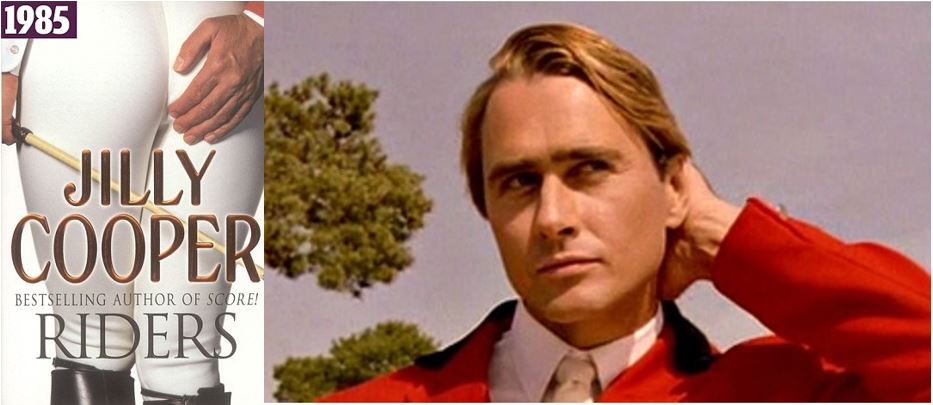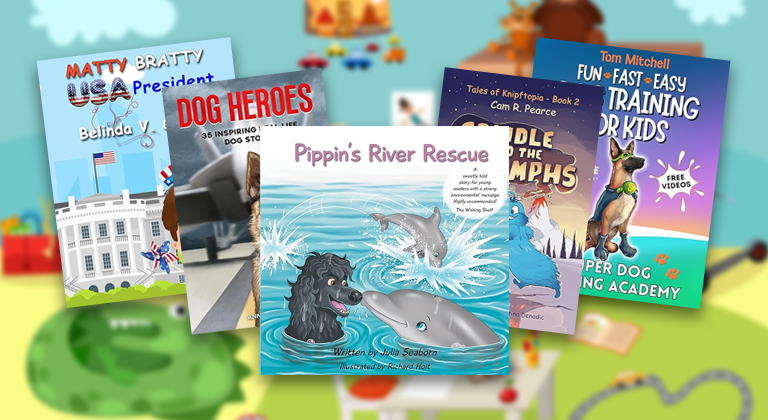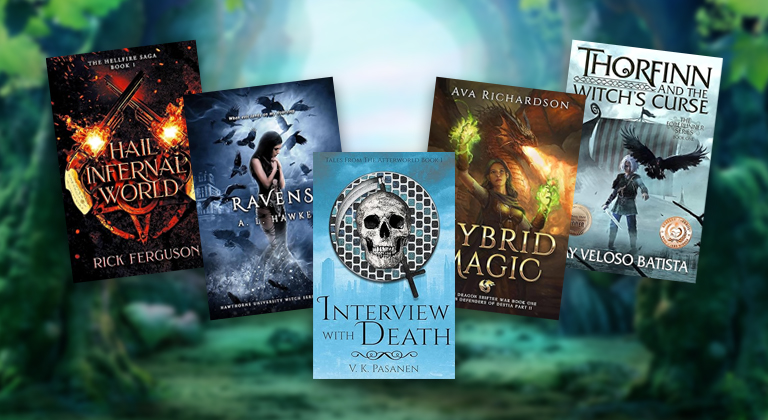Give Your Audience What They Want
Santa may only bring gifts once a year, but as an author, your job is delivering what your readers want all year round. That’s why it’s important to understand your market and your genre, and meet the expectations of your audience. That doesn’t mean selling out or having to change your actual story, just making sure you’re telling it in the most effective way. And to help make our point, we have a few popular examples of where this has gone wrong, and when it’s been done right.
Readers expect something from you – so, successful writers don’t disappoint.
The other day, I half-watched The Mandalorian, on Disney+, since my wife was watching it while tidying up. To her annoyance, I kept predicting what would happen next – even down to the specific lines of dialogue – and eventually she switched it off and snapped: “Well, you might make fun – but I was enjoying it.”
But, here’s the thing – I wasn’t making fun of it. I think The Mandalorian is actually a fantastic show; and the predictability of it is part of the appeal. It even keeps in with the Star Wars movies themselves; the scripts of which are delightfully hokey. I wasn’t predicting the lines of dialogue because I’m oh-so-intelligent, or consider myself smarter than the people who wrote the show (the opposite, actually) but because to me, each predictable line was as satisfying as pairing peanut butter and chocolate together. It worked because it was familiar – because it made me feel like I was part of it all.
It made me feel like there was a lesson here for us writers – about how to make your newly-published work fresh and exciting, while at the same time as comfortable for your readers to slip into as an old, well-worn pair of boots.

Winning Formula
To me, the appeal of The Mandalorian is that it exactly fits the mold of TV shows they tend not to make any more. Back when I was a kid, I loved The A-Team, and Knight Rider, and the Dukes of Hazzard, and part of the appeal of those shows was that you knew what was going to happen every week. To my mind, The Mandalorian is exactly like that – a badass bounty hunter and a cute little Baby Yoda travel the universe, having largely self-contained adventures each episode, which serve a larger narrative that spans the entire season.
Over the last twenty years, TV shows have generally shied away from that – with a much grittier and cynical take on the narrative. It keeps things interesting and I’ll admit that shows like Breaking Bad and House of Cards have really shown us just how far the envelope can be pushed when it comes to long form drama…
…but there’s nothing wrong with formula; especially as a writer.
In fact, being able to respect and appreciate formula – to not think you’re ‘better’ than what undeniably appeals to a large subset of readers – can make all the difference between your success or failure as an author.
More so than that, the formula can spark a familiarity with your work that your readers have come to crave; and once you’ve built that up, it gives you the opportunity to expand on it. As Pablo Picasso once said: “You have to learn all the rules, so you know how to break them.”
For example, my romance novels are pretty formulaic – a girl and a hero meet, they spark up an attraction… and then people come to kill them. Whether the stories are set in London or the Lebanon, there’s a familiar flow which readers appreciate; while at the same time there are an almost infinite variety of characters, context, locations and events to combine to make sure every book is fresh and new even if it is a ‘formula.’
And then, every so often, you get to buck that formula; and get an astonished reaction from your readers when you do.
I’ve written before about how the romance genre gets a bad rap for being ‘formulaic’ – but it’s no less so than a lot of thrillers, or sci-fi. In fact, most of the other content you consume is formulaic. What would be a news report without the familiar graphics and musical ‘sting’? Or how would you feel if you didn’t receive your Starbucks latte with your name written on the side of it? Process makes perfect; and formula helps readers and consumers know what to expect from you.
Getting it wrong
The other day, the trailer for Ghostbusters: Afterlife dropped, and nerdy fans like me nearly exploded with excitement. It had exactly that right mixture of comedy and creepiness that I loved from the original movies; which remain some of my favorite to this day.
Many fans of the original Ghostbusters reacted to the trailer with more joy than they had the entire 2016 reboot of the franchise; which was a box office bomb and generated incredible controversy. Rather than being able to appreciate the movie on it’s own merits (it was pretty damned funny) the entire issue became almost politicized – with detractors of the movie labeled as ‘sexist’ and ‘toxic fans’ for not embracing the reboot (and, in defense of that argument, some of the fans did really toxic things) while those who defended the movie were attacked for it being disrespectful to the original movies, and a cynical gimmick by switching the gender of the cast (which, again, are both valid arguments.)
At the end of the day, the proof was in the box office – with Ghostbusters 2016 being a commercial flop, while buzz for Ghostbusters: Afterlife suggests it’s going to be a blockbuster. The irony was that the people arguing in support of Ghostbusters 2016 – heralding it as a triumph for women in movies – didn’t actually support the film where they needed to; at the box office. Why? Because they’d never been fans of the original in the first place. If they weren’t going to pay to see the original, why would they pay to see the reboot? Even if they did have loud and vocal opinions about it.
By disrespecting the original fan base of the movies – the people who’d avidly cough up their dollars to see a sequel – the movie became an almost guaranteed flop; because it’s fans of a series who help to keep driving a franchise forward; not the people who complain about it on message boards and Twitter.
This is exactly the same when it comes to writing; and that’s why building a fan base remains the best and only way to truly make an impact in this business.
The Core Fans
From the day I first published a short story on Amazon, to the day I made more in book sales than I did from my day job, was almost exactly five years.
They were five long, thankless years in which I kept writing away, never knowing if I was ever going to ‘make it’ as a writer. The only thing that sustained me was the fact that I was a writer – I loved to write – and even if I hadn’t expected any money to come in from writing, I’d have still done it. After all, the first things I’d ever published on Amazon had been the dozens of saucy stories I’d used to have up for free on old forums and message boards; so writing was just part of who I was.
But when I started putting items up for sale on Amazon, the rules of the game changed. I used to write for myself – now, I was writing for other people.
It’s a difficult transition to make, but an important one. While writing stories you love about characters who engage you is essential if you ever want to be a successful writer – you also start needing to listen to advice, criticism and even doing the one thing writers claim to hate – ‘writing to market.’
What is writing to market? It’s basically when you look at the books that are most successful in your genre and start to adopt the patterns and protocols that they all seem to share in common. For example, when I first started writing romance novels, I wrote in the third person POV – “he did this” and “she did that.” It was similar to the style of writing I’d grown up with.
However, in romance novels the first person perspective was most popular (“I did this”) and many books actually alternated between the heroine’s POV for one chapter, and the hero’s POV for the next chapter. It was a real lurch out of my comfort zone when I first tried it…
…but the amazing thing was, my readers liked it. A lot.
The first book I wrote with alternating first person POV doubled the sales of any of my other stories; and I’ve written that way ever since.
Another aspect that I got spanked for was having cheating in my romance stories. I got raised in the 1980s, with the bed-hopping works of Jackie Collins and Jilly Cooper. I thought cheating was just part of the melodramatic formula!

I was totally, completely wrong. Women want to read about bad-boys in their books – but not those type of bad-boys. Infidelity was unforgivable, and by making sure it never occurred in my novels again, I instantly gained an average of a full star on the reviews I received.
In addition to honing my craft, making these changes made me keep writing – and each new book I’d publish would pick up just a little bit more steam than the last. I quickly came to find that I was developing a core group of fans – maybe 400 of them initially – who’d purchase my latest book through Kindle Unlimited whenever I told them about it using my newsletter.
The more I wrote, the more fans I gained. The more I adopted styles and conventions from more popular books, the faster those gains appeared. This was the route that eventually launched me to my first best-seller – but, more importantly, it sustained me with the books that followed.
My core group of readers supported me with each and every new release, as long as I respected what had made them into fans in the first place; and it’s what eventually enabled me to become a writer full time, and make a full time income from doing what I loved.
However, it was recognizing the formula they expected, and the ‘rules’, that helped me achieve that – and rather than forcing me to ‘change’ my stories, I found that obeying the rules and meeting expectations actually helped me to become a better writer overall.
Conventions aren’t Compromise
When I tell people this story, a lot of the time the first response I’ll get is: “Well, I don’t want to compromise the integrity of my story.”
Adopting big, paradigm-altering shifts to your style and tone of writing takes a lot of writers well out of their comfort zone – and many of them feel like they’re being forced to sacrifice their own unique style in order to ‘write to market’ and chase the money.
Now, this is certainly something I’ve seen writers do. There are some who make the conscious choice to ‘write to get rich’ and go to the top of the Amazon bestsellers list to see what books are selling well. They might try to write a best-selling dark mafia romance, or Lee Child thriller…
…but they normally fail, and get burned out pretty quickly.
This is because the secret ingredient you really need to succeed as a writer is passion. A good writer starts with a story they need to tell – that they’d scrawl on flagstones with their own blood if there wasn’t a pen and paper available with which to do so. Even the most derided, scoffed at books in history – books like Fifty Shades of Grey – originated as a passion project. E L James admits that the saga of Anastasia and Christian Grey started life as fan fiction, and if E L James had never got a publishing contract, the chances are she’d still be writing fan fiction to this day.

Everything else is window dressing – because it’s the story that’s essential. As long as you don’t have to compromise on the story, none of the rest matters.
When it comes to things like shifting the point of view from third person to first person, that’s not compromise – that’s just a style. It’s the same story, and the same things happen in it. It just shifts the perspective of how the story is told to you. It’s as much of a ‘compromise’ as shifting camera angles in a movie or TV show.
In fact, consider that exact example. Last year’s blockbuster movie Avengers: Endgame was based on the original Infinity Wars comic series from Marvel – with the same characters, and largely the same story line. The comic series was beloved and iconic, and the movie became so too – because the story was the focus. Nobody argued that Marvel were ‘compromising’ by making a movie adaptation of their comic book, and if you make a similarly big shift in the style of your writing to appeal to your target market, that’s not a compromise either.
Think of the conventions and styles of a genre like poetry. A haiku has a familiar 5-7-5 syllable structure. A sonnet requires a pattern known as the iambic pentameter. The creativity of an artist is fitting what they want to say within this style – and it’s sticking to the structure that makes poetry what it is.
Stories are like that. They’re malleable – liquid – and can be poured into any container you’re talented enough to be able to write around them. You can take practically any story and retell it in different styles and conventions, because the essence of a good story is bigger and more important than any of the words used to tell it.
For example – how about a fast-paced thriller about a grizzled archaeologist trying to steal a priceless artifact away from the Nazis? Sound good?
What about a steamy romance about a couple meeting again after twenty years? She’d been an innocent teenager, and he’d been the selfish college grad who seduced her. A decade later, whirlwind adventure brings them back together; and true love is rekindled.
Both examples sound good. Both examples sound very specific to their genre. Both examples are the plot of Raiders of the Lost Ark.
The way you tell your story is less important than the story itself; so never be afraid to experiment or adapt, depending on the audience you’re intending to reach. You’re not compromising your vision – you’re just adjusting it to appeal to a wider audience, who deserve to read it.
Another way I’ve always enjoyed viewing writing is by looking at it as a craft, not an art.
A table can be a beautiful work of art – with ornate carvings and polished veneer – but unless is has legs and a flat surface, it’s not much good to anybody. Before a carpenter can become a great artist, therefore, they need to become a serviceable craftsman – and build tables that actually meet the specifications of those who want to buy them.
Likewise, as a writer – you have to learn how to craft your stories to fit the genre you write in, and if you don’t it doesn’t matter how artistic they are. Ornate carvings and polished veneer are meaningless, because nobody who needs a flat surface to eat their dinner on is going to buy a table with a fancy pyramid top.
Conversely, if you do manage to craft your stories into what customers want to read – you’ll start building a fan base of readers who know that you can deliver on what they want.
That is where your writing career starts and ends.
The Ghostbusters example
The controversy over Ghostbusters 2016 is a prime example of this.
The original two Ghostbusters movies remain iconic even today, with a legion of fans both young and old. They span off a wildly successful kids cartoon in the 1980s, and another show in the late 1990s that featured the ‘extreme’ Ghostbusters. It’s a massively popular franchise even beyond being the highest-grossing comedy film of the 1980s.
With that kind of support, a blockbusting Ghostbusters sequel in 2016 should have had box-office gold written all over it – so, where did director Paul Feig and the cast go wrong?
Personally, I thought the film was pretty hilarious, and I loved the cast – and if it had existed in a cultural vacuum, I might have even loved it. But, the problem was – it didn’t. It was a movie that followed up one of the most iconic franchises of all time; and paid no respect to any of them.
The original movie was criticized for being about ‘boys and their toys’ so instead of doing what the 1990s Extreme Ghostbusters did, or the new Ghostbusters: Afterlife promises to do (which is have a core cast of both male and female Ghostbusters) the new movie switched the all-male cast for an all female cast – which was seen as a cynical gimmick (and which has proved to be box office poison for every film that’s done the same, including Ocean’s Eight and The Hustle.)
Likewise, the original movie had a beloved cast of characters and a rich backstory to leverage – and the reboot ignored all of it; even having the original cast turn up in totally pointless cameos.
Essentially, director Paul Feig took everything that the passionate, core fans of Ghostbusters loved – and then threw it all out into the trash.

Then, he had the audacity to wonder why those same fans didn’t turn up to see it. In interviews he complained: “Geek culture is home to some of the biggest a**holes I’ve ever met in my life,” and that: “The biggest thing I’ve heard for the last four months is, ‘Thanks for ruining my childhood’.” When people criticized choices he’d made, like the all-female cast, he complained: “Why is a movie starring women considered a gimmick and a movie starring men is just a normal movie?” This was despite the fact that Ghostbusters followed female-led blockbusters like Wonder Woman and Rogue One: A Star Wars Story, and Suicide Squad and Captain Marvel would also dominate the box office a short while later.
There’s no question that some of the online behavior of so-called ‘fans’ of Ghostbusters was beyond disgusting – with truly despicable attacks against cast members like Leslie Jones. There’s simply no excuse for that kind of behavior – it’s unacceptable.
However, looking beyond that, there seems to be a lesson to be learned: If you’re lucky enough to have a core group of engaged fans to support your work, you’re missing a trick if you don’t give them what they want.
Appeal to your core audience, but always search for a new one
As writers, this is a lesson we should definitely take to heart.
Each book you write and publish will slowly build up a core audience for your work – and through a mailing list, Facebook page and other methods of engagement, you need to nurture this relationship. These are the fans who will buy each new book you publish, making every new title more successful than the last.
If you give them what they want – you listen to praise and criticism, and discern between the two – you can make it as an author. If you don’t, you’ll lose the one thing that can give you an edge.
It’s not that you have to pander. It’s not that you have to ‘write to market’ and chase popular trends. You just have to be a craftsman – able to create what is meaningful to you, but present it in a way that your core audience responds to. You can certainly choose not to take this advice – just like Paul Fieg failed to do with Ghostbusters 2016 – but when the results are less than overwhelming, you have nobody to look to but yourself.
Back to Baby Yoda
This is where The Mandalorian stands apart from Ghostbusters 2016. In many ways, the new Disney+ show is formulaic. It is predictable. You know what you’re going to get whenever a new episode launches; which is precisely why you’re eagerly awaiting it with popcorn in hand.
Mando and Baby Yoda are your familiar friends, and you want to see them have adventures that are familiar. Each episode does push the envelope a little – and it’s all building to something greater, which we might discover is linked to the new movie that comes out this month – but what’s new is always built on a foundation of what works.
That’s what your philosophy should be as a writer. Don’t try and rewrite the wheel. Don’t strike out on your own and wonder why nobody follows. Artists can duct tape a banana to a wall and charge $125,000 for it – but writers can’t. “We’re apprentices,” Ernest Hemingway once said, “in a craft that nobody ever masters.”
You learn a craft, and you hone it. You get better with each project you complete. You become successful by delivering what people want, and you become beyond successful by adding your own unique spin on it. That’s what the secret to success is – taking the parts that are familiar, and good (like, in Star Wars lore, the familiar Boba Fett costume of a Mandalorian bounty hunter) and adding something bright and exciting to it (like Baby Yoda.)
If you can manage that – something borrowed, and something new – then your potential for success is nearly limitless.
But the foundation for all of it remains to respect your readers, find out what they like, and deliver it to them. If you can’t manage that, you’ll always be facing an uphill struggle; and you can’t blame readers for not buying your books if you don’t give them what they expect.












Romance Formula-writing…well, maybe…might work for some…those that are lucky at winning lotteries.
However, romance-formula writing definitely works for those who have a 400-reader strong list where all or almost all list members will read and review the book-and may even buy it, full-price without Amazon forcing you to reduce it to 0.99.
Any writer who is capable of constructing reading lists with hundreds of reading-members (that stay and whose emails don’t bounce from one announcement to the next)will succeed and be able to make a living, writing formula-romances.
That’s what would have been interesting to find out – HOW did you go about assembling a strong reading audience list, keeping those readers on (active emails) and getting them to read and review your books.
That’s actually the only real secret to writing, formula and otherwise.
If you (the writer) manage to compile a reading list composed of hundreds of readers who read, stay, keep their email active and post reviews for your books – then you’ve made it. Doesn’t matter what the genre of your books. Doesn’t matter whether you ride an old romance formula or sail out there into the virgin territory with your story – a reliable, legitimate-reader reading list is your path to success…so, how did you assemble that 400-strong reading audience list? What did it take? Where did the readers come from? How long did it take and what were the obstacles (there had to be some…) that kept you from building a strong, reliable list faster than 5 years.
Something old, something new is old news to writers. The Mandalorian is successful because anything sucking/touching the Star Wars fame, tangentially and otherwise, will always be successful.
But succeeding in building strong reading audience lists, with hundreds of reliable, loyal and legitimate readers…that’s that will have the audience of this blog…holding their breath and reading ’til the end.
Great post, as always, Ginger. Thank you!